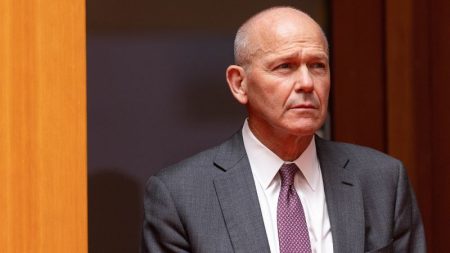Former President Donald Trump met with a group of powerful business leaders in Washington and expressed his desire to slash corporate taxes once again. Specifically, Trump indicated his intention to reduce the corporate tax rate from the current 21% to 20%. Among the CEOs present at the meeting were prominent figures such as Jamie Dimon of JPMorgan, Tim Cook of Apple, and Doug McMillon of Walmart. Trump has previously made it known that extending the 2017 Tax Cuts and Jobs Act, one of his key accomplishments during his presidency, would be a primary focus in a potential second term.
Critics have pointed out that these tax cuts, extended through the 2017 legislation, are set to expire in 2025 and could potentially cost billions of dollars to extend. By proposing an even lower corporate tax rate, Trump may be adding to the projected cost of continuing these tax cuts. The former president believes that cutting the corporate rate to 20% would lead to job creation and improve America’s competitiveness in the global market. During his meeting with the Business Roundtable lobbying group, Trump also touched on issues such as the border, inflation, and the need for increased oil production.
Trump’s campaign confirmed his plans to make all of the 2017 tax cuts permanent and to lower the corporate tax rate to the desired 20%. His rationale for these tax cuts, including the corporate rate reduction, was highlighted in discussions with the CEOs present. The goal is to stimulate economic growth, create more job opportunities, and enhance the country’s position in the global economy. Trump’s stance on tax cuts has been previously reported by various media outlets, including The New York Times.
The potential implications of Trump’s proposed tax cuts, particularly the reduction in the corporate tax rate, would have wide-ranging effects on the economy and government finances. Critics argue that such tax cuts disproportionately benefit corporations and the wealthy, leading to increased economic inequality. Proponents, on the other hand, believe that lower taxes can spur economic growth, attract investment, and create jobs. The debate over the efficacy and fairness of tax cuts is likely to intensify as discussions around fiscal policy and government spending continue.
As the U.S. grapples with multiple challenges, including recovering from the impact of the COVID-19 pandemic, addressing climate change, and enhancing infrastructure, the role of tax policy in shaping the country’s future becomes increasingly significant. Trump’s stance on tax cuts, supported by influential business leaders, reflects a belief in supply-side economics and the power of incentivizing corporations to drive economic growth. However, the long-term consequences of such policies, including their impact on government revenues and societal inequality, remain subjects of debate and scrutiny.
In the coming months and years, the debate over tax policy is likely to be a central point of contention in political discussions and policy decision-making. The balancing act between stimulating economic growth, addressing social inequities, and ensuring fiscal responsibility will require careful consideration and deliberation. The legacy of Trump’s tax cuts and their potential continuation under future administrations will shape the economic landscape of the United States and influence the direction of government policy in the years to come.















